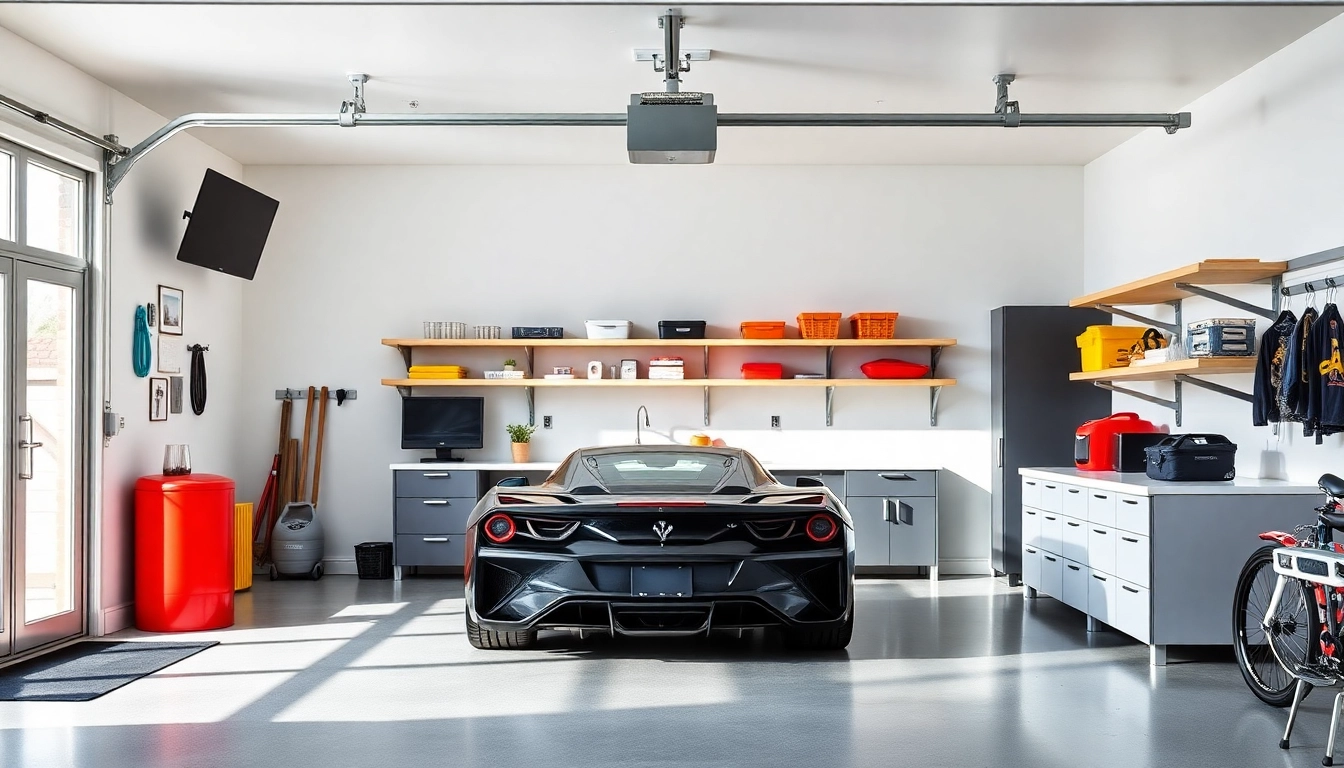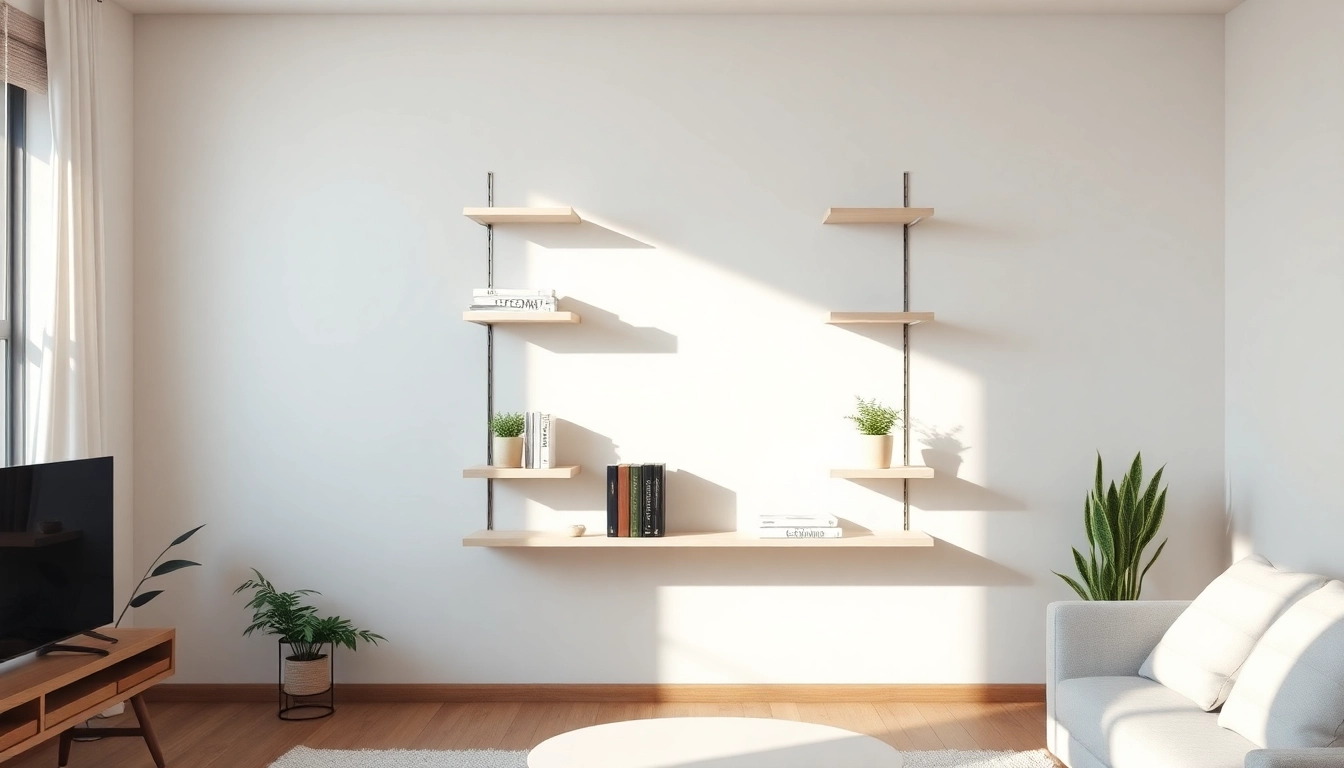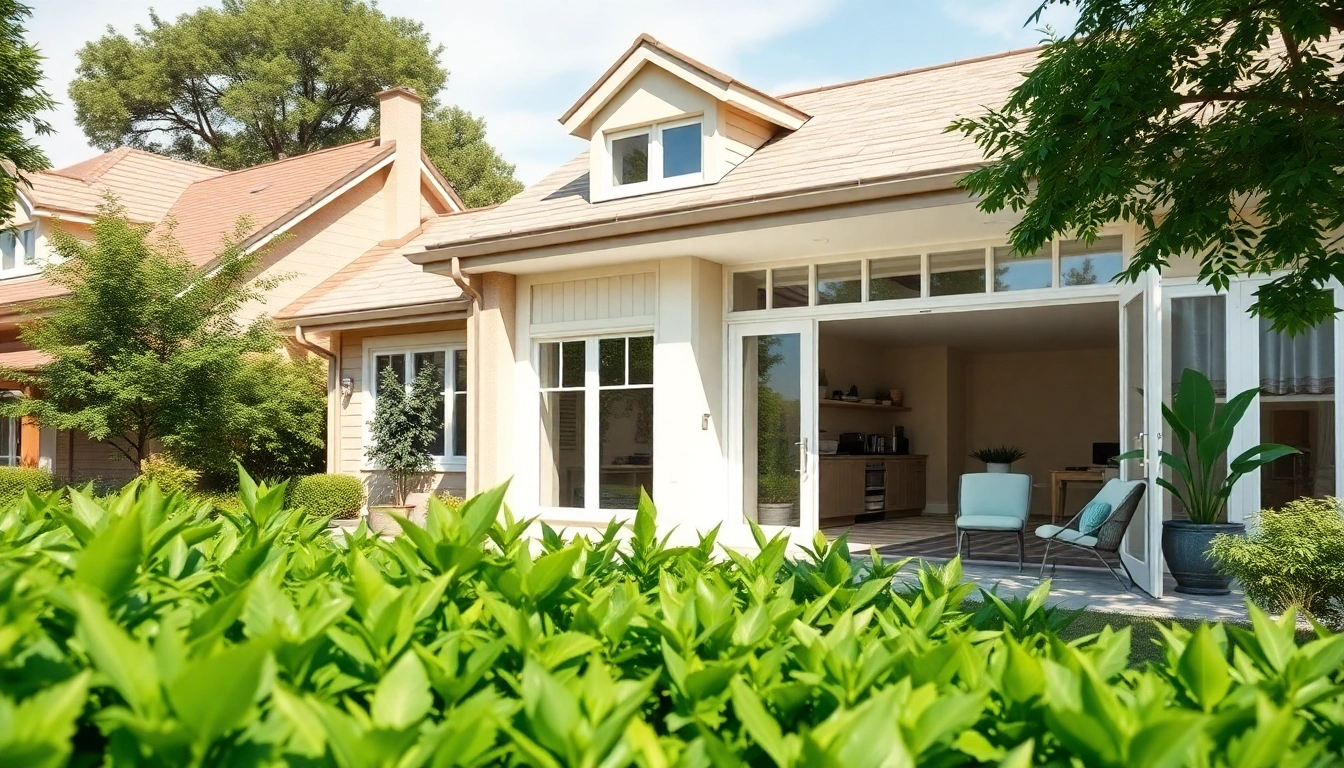Understanding Custom Garages
What Are Custom Garages?
Custom garages are tailor-made structures designed to fulfill specific needs and preferences of their owners. Unlike generic garage designs, these garages provide the flexibility to incorporate various features, materials, and layouts that align with the homeowner’s vision and functional requirements. A custom garage can be an extension of your home, offering designated space for vehicles, storage, workshops, or recreational areas, making it an integral part of your property.
Benefits of Custom Garages
The advantages of opting for a custom garage go beyond aesthetics and functionality. Here are some key benefits:
- Tailored Design: Custom garages allow homeowners to choose layouts, styles, sizes, and features that perfectly suit their needs.
- Increased Property Value: Investing in a high-quality, custom garage can enhance your property’s overall value, providing a significant return on investment.
- Versatility: These garages can be designed for multiple uses, including as a workshop, a gym, or a guest house, depending on your lifestyle.
- Improved Organization: Custom-built storage solutions can optimize space usage, helping keep tools and equipment organized and easily accessible.
Choosing the Right Style
Selecting a garage style involves considering the architectural aesthetics of your home and neighborhood. Popular styles include:
- Traditional: These blend seamlessly with classic home designs and often feature gable roofs and large doors.
- Modern: Characterized by clean lines and minimalism, these garages integrate large windows and varied materials for a contemporary look.
- Victorian: These elaborate structures often include decorative trims, steep roofs, and vibrant colors, making them stand out in any neighborhood.
Designing Your Ideal Space
Factors to Consider When Designing Custom Garages
Designing a custom garage goes beyond the aesthetic; it should also address practical needs. Consider the following factors:
- Size: Determine vehicle requirements and additional storage or workshop space. Measure your lot and consider local zoning laws.
- Accessibility: Ensure that the garage is easy to access from the street, and consider adding features like ramps for mobility.
- Lighting: Both natural and artificial lighting are essential. Skylights or large windows can enhance natural light, while adequate fittings ensure nighttime visibility.
Popular Features and Add-Ons
To enhance your custom garage, consider adding:
- Storage Solutions: Built-in shelving, cabinets, and overhead storage can maximize vertical space.
- Workbenches: Designated work areas with power outlets can facilitate hobbies and repairs.
- Heating and Cooling: To make the garage usable year-round, consider HVAC systems or fans for ventilation.
- Automated Doors: Modern convenience includes automatic openers, enhancing security and ease of use.
Maximizing Storage Solutions
Storage is a significant aspect of any garage. Here are clever ways to maximize storage:
- Vertical Storage: Utilize wall-mounted cabinets and shelving units to keep floors clear and organized.
- Overhead Storage: Use the ceiling area for seasonal items or less frequently used equipment.
- Specialized Storage Units: Consider custom solutions for specific items, such as bicycles, tools, or sports equipment.
Materials and Construction
Choosing Quality Materials for Custom Garages
Material choice impacts both aesthetics and durability. Common materials include:
- Wood: Offers a traditional look and great insulation but requires regular maintenance.
- Metal: Steel and aluminum provide durability and require minimal upkeep, making them cost-effective over time.
- Vinyl: Low-maintenance and weather-resistant, vinyl can mimic the look of wood without the associated challenges.
Understanding Construction Options: Wood vs. Metal
The decision between wood and metal affects the construction timeline, cost, and overall longevity:
- Wood: While offering a traditional aesthetic, wood garages are typically more susceptible to weather damage and pests.
- Metal: Metal garages are often prefabricated, leading to faster construction times and superior durability, making them generally more cost-effective in the long run.
Environmental Considerations in Garage Building
Today’s homeowners are increasingly aware of environmental factors. To build a sustainable garage:
- Eco-Friendly Materials: Opt for recycled steel or responsibly harvested wood.
- Energy Efficiency: Insulation, energy-efficient windows, and sensible layout can minimize energy use.
- Stormwater Management: Install permeable paving to manage water runoff and reduce flooding risks.
Cost Considerations for Custom Garages
Budgeting for Your Custom Garage
Understanding the cost structure is critical when planning your garage. The overall budget should encompass:
- Initial Costs: Include design, materials, and labor.
- Ongoing Maintenance: Consider future repairs, maintenance, and utilities.
- Unexpected Expenses: Set aside a contingency fund for unplanned costs that can arise during construction.
Understanding Pricing Variations
Cost variations can stem from several factors, including:
- Location: The cost of labor and materials can vary significantly across regions.
- Design Complexity: Custom designs with unique features typically incur higher costs than standard models.
- Size: The larger the garage, the greater the expense for both materials and labor.
Financing Options for Custom Garage Projects
Homeowners can explore several financing routes for their garage projects.
- Home Equity Loans: Utilizing equity can provide favorable borrowing terms based on your home’s value.
- Personal Loans: Unsecured personal loans offer flexibility but may carry higher interest rates.
- Manufacturer Financing: Some builders offer financing options that can spread out payments over time.
Finding the Right Builder
What to Look for in a Custom Garage Builder
Selecting a reliable builder is crucial. Key aspects to consider include:
- Experience: Look for builders with a proven track record in constructing custom garages.
- License and Insurance: Verify that your builder is licensed and carries adequate insurance to protect against potential liabilities.
- Material Quality: A reputable builder should use only high-quality materials and could provide references from previous projects.
Questions to Ask Potential Builders
Before committing, engage with potential builders through the following questions:
- What is your estimated timeline for project completion?
- Can you provide references or a portfolio of previous work?
- What warranties do you offer on both labor and materials?
Customer Reviews and Portfolios
Ensure you research customer feedback on builders. Look for:
- Online Reviews: Check platforms like Google, Yelp, and HomeAdvisor for authentic reviews and ratings.
- Portfolio of Work: Review completed projects to get a sense of the builder’s style and quality.
- Client Testimonials: Personal accounts can provide insight into the builder’s reliability and customer service.




